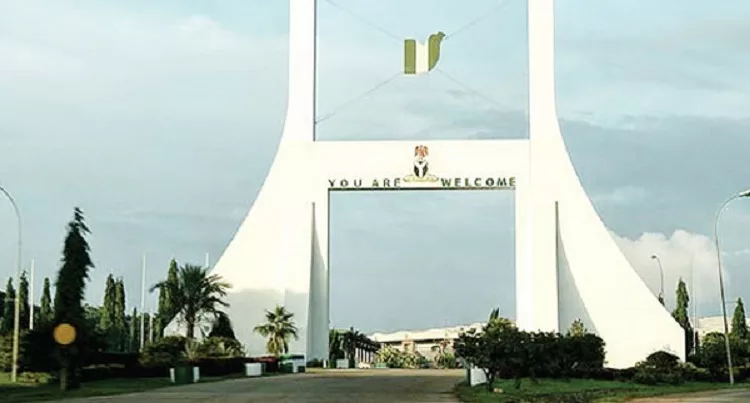The spate of insecurity in the Federal Capital Territory (FCT), Abuja has become worrisome. Abuja, once known to be one of the safest places in the country, has become a den of all sorts of vices ranging from kidnapping to “one chance” mobile robbery operations among others.
Residents in the nation’s capital have witnessed a significant rise in various forms of crime, including armed robberies, home invasions, and, notably, kidnappings, which have become a pressing concern for all.
According to a recent report by SBM Intelligence, an Africa-focused market and security intelligence firm, business revenue is troublingly declining by 33 per cent due to escalating criminal activities, particularly kidnappings and robberies. This situation affects not only the economic landscape but also citizens’ daily activities, forcing many to alter their routines and invest heavily in personal security measures.
The report indicates that abductions have increasingly shifted from once notorious areas like Bwari and Kuje to more central locations within the Abuja Municipal Council Area.
Between January 2023 and January 2024, there were alarming increases in kidnapping incidents, with Bwari recording the highest number of abductions at 158 cases.
The psychological toll is equally significant – families of kidnap victims endure emotional trauma and financial burdens due to ransom payments and, in some cases, the death of the victim even after a ransom is paid. This situation has led to increased migration as people seek safer environments, contributing to a brain drain that further undermines the city’s economic stability.
The menace of the activities of the notorious “one chance” operators in the capital territory renders moving around in bikes or cabs something to pray over.
Recent reports show a surge in “one-chance” robberies in Abuja, where criminals impersonate security agents to deceive and rob unsuspecting victims. The crime is typically carried out in commercial vehicles, where criminals pose as passengers before turning against other passengers on transit.
They do not only rob their victims of their money and belongings; even worse, they shove them off their fast-moving vehicles. Over 100 cases of “one chance” have been recorded in Abuja since 2015, leading to injuries and fatalities. This figure may be significantly higher as many cases have gone unreported. Although “one-chance” has been operating for a long time, its evil operations and growth in Abuja have created new worries that call for new strategies. People no longer feel safe going about their daily activities for fear of being victims of these criminals.
Last month, the lawmaker representing Toro Federal Constituency of Bauchi State, Ismail Dabo, lost his legislative aide, Nimah Sulaiman, to “one chance” robbers in the FCT.
The young lady was kidnapped and brutally murdered on her way home to Jahi District. Despite paying ransom in total, her life was tragically cut short.
This is a painful reminder of the worsening security situation in the capital territory.
The economic impact of this surge in insecurity is profound. Transport fares have surged by 100-250 percent, while estate security fees have risen by 20 percent. Rent prices in highbrow areas have skyrocketed, placing additional financial strain on the residents.
On the part of the government, in response to the escalating insecurity in the FCT, the House of Representatives recently summoned key officials, including the Minister of the Federal Capital Territory (FCT), Nyesom Wike, the Commissioner of Police and other security stakeholders to address the worsening security situation.
In the last year, the FCT minister has demonstrated the political will to tackle insecurity and make the capital city safe again.
Despite these efforts, many residents remain doubtful about the effectiveness of government interventions as kidnappings and attacks by “one-chance operators” have continued unabated. The establishment of special security units has yielded some positive results, such as the arrest of some suspected kidnappers and rescue operations for victims. However, these measures often appear reactive rather than proactive, leading to ongoing fears about personal safety.
The economic implications of rising insecurity extend beyond immediate financial losses for businesses. From 2020 to 2024, Nigerians reportedly paid about N1.048 billion naira in ransom to kidnappers, while another N653.7 million was reported to have been paid between July 2021 and June 2022.
The cumulative effect of this ugly menace includes reduced investor confidence, which can deter new businesses from entering the market or expanding operations in Abuja.
Rising insecurity in Abuja presents a multifaceted challenge that requires urgent attention from government officials and community leaders. While recent efforts have shown some promise in curbing crime rates, this newspaper believes that sustained action is necessary to ensure long-term safety and stability for residents.
Robust law enforcement is essential in reclaiming Abuja’s status as a safe haven for its citizens. As a newspaper, we demand action against this growing menace while calling on all stakeholders to collaborate effectively to restore peace and security in Nigeria’s capital.











